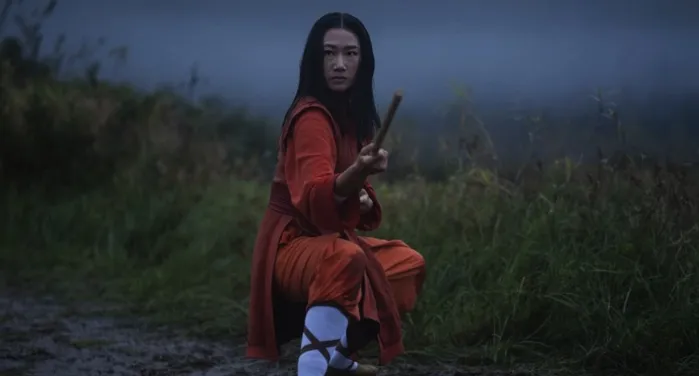
KUNG FU, Books Featuring Martial Arts, And A Reader Who Loves Them
It’s possible it all started, for me, with Kung Fu: The Legend Continues. I was 10 years old when it first aired, and my whole family would gather around the TV to watch the exploits of David Carradine. I was unaware of its many issues, but fortunately more authentic options followed as I started exploring wuxia and martial arts. I watched Bruce Lee and Jackie Chan, Jet Li and Michelle Yeoh and Yimou Zhang, and read wuxia books to round out my knowledge and understanding of the genre. Now, fully aware of the appropriation involved in the original, I was filled with glee when I saw this New York Times piece about the reboot, Kung Fu, which has an Asian American female lead, an Asian American female showrunner, and a mostly Asian cast. The first episode just aired, and it was absolutely everything I wanted: amazing action sequences, complicated family feelings, and a possibly magic artifact that I cannot wait to learn more about. So in honor of Kung Fu, let’s talk about several recent books featuring martial arts, each in their own unique way.
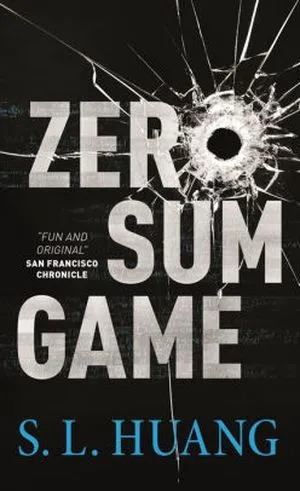
Zero Sum Game by S.L. Huang — The Cas Russell Series
My intense love for S.L. Huang’s Cas Russell series made it my first thought. Huang herself is a stunt person and a mathematician (truly, her bio is fascinating), and her love for both fields shines through in these books. Our heroine Cas is a mercenary who uses math as a literal superpower, dodging bullets and striking her opponents at the precise angle to cause maximum damage. She tries to use her powers for good, but things are inevitably more complicated than that. Then there’s her past, which she can’t remember and doesn’t want to, but which is forcing its way into her life with extremely violent results. Cas’s adventures in and around Los Angeles are page-turning, and I would be remiss not to shout out the supporting characters who are as quirky a bunch of dysfunctional found family as one could hope for. Pick up Zero Sum Game, the first book, and gird yourself for a wild ride.
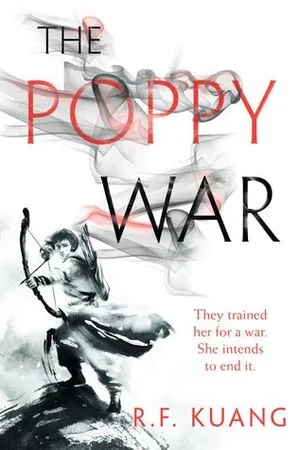
The Poppy War by R.F. Kuang — The Poppy War Series
Speaking of series, R.F. Kuang’s The Poppy War has to be included. While the trilogy’s action sequences largely revolve around military strategy, the first book has some amazing hand-to-hand combat sequences. Rin is a poor war orphan who gets into an elite military training academy through sweat, blood, and tears, and her struggles unfortunately continue. Her fellow classmates are largely wealthy and privileged, but Rin’s determination to succeed helps her carve out a small space for herself. Her training sessions with the enigmatic and eccentric Jiang are a sterling example of the trope, as are the sparring matches Rin obsessively watches to catalog techniques. It’s also possibly one of the most morally straightforward parts of the series; this is a grimdark fantasy, born and bred, as you’d expect from a premise that is inspired in part by the Sino-Japanese War. It wrecked my heart (particularly that series ending!), so consider yourself warned.
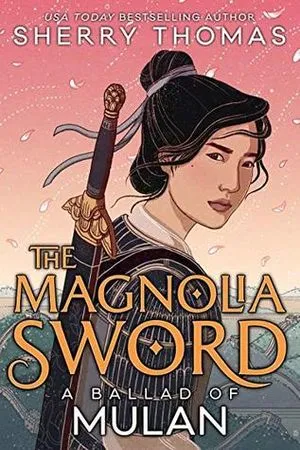
Magnolia Sword by Sherry Thomas
On a lighter note is Sherry Thomas’s Magnolia Sword, which is a retelling of the story of Mulan that is entirely Thomas’s own, and I don’t know why you’re still reading this post and not reading it already. But since you’re here, this novel gave me everything I wanted from it and then some. You’ve got a girl trained to the sword from birth, our heroine going undercover, a pair of star-crossed lovers, and some of the most memorable action sequences I’ve read in years. There’s a particular scene that involves walnut-throwing that will live forever in my brain; it sounds ridiculous, but JUST YOU WAIT. And then there are all the complicated family feelings it gives me, whew!
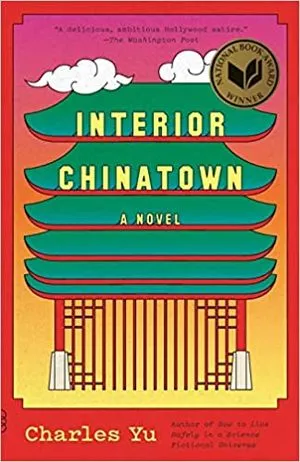
Interior Chinatown by Charles Yu
When I think about reboots and addressing the years of appropriation, fetishization, and erasure of the Asian community in Hollywood, it is impossible not to think of Interior Chinatown by Charles Yu. It won the National Book Award in 2020, and deservedly so; it’s a triumph on so many levels. Written in screenplay format, the book is a satirical meta-narrative following a denizen of Chinatown, which is both a set for a procedural buddy-cop show and a location where people are born, live, work, and die. There are limited roles for Asian Americans in Chinatown, most of them demeaning, and our hero Willis Wu aspires to the pinnacle of possible achievement: Kung Fu Guy. Yu writes action sequences beautifully and cinematically, perfectly matching the book’s premise. He also complicates our understanding of the role of Kung Fu Guy, and calls out Hollywood’s and America’s many sins against the Asian American community. If you want both a fantastically engaging read and a dive into the complexities of anti-Asian racism in pop-culture, this is a must-read.
While I’ll probably never be able to hurl a walnut hard enough to take out a bad guy, learn the secrets of an ancient training regimen, or fight injustice with my deadly fists, I’ll always be able to dream, thanks to creators like these. May we continue to get new martial arts stories, whether they right old wrongs, retell a beloved favorite, or shine new light on the genre! I’ll be here with the popcorn, ready to read and watch.











